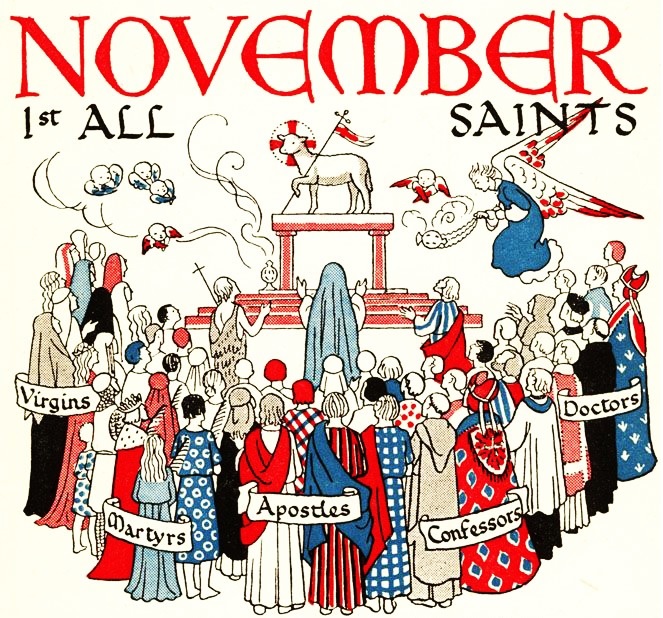
It so happens that this year is where All Saints’ Day falls in the week of the Twentieth Sunday After Trinity which allowed me to read both collects together:
| 1662 BCP | B&C P’s modernisation |
| Collect for the Twentieth Sunday After Trinity | |
| O ALMIGHTY and most merciful God, of thy bountiful goodness keep us, we beseech thee, from all things that may hurt us; that we, being ready both in body and soul, may cheerfully accomplish those things that though wouldest have done; through Jesus Christ our Lord. Amen. | Almighty and most merciful God, in your bountiful goodness keep us, we pray, from all things that may hurt us; that we, being ready both in mind and body, may cheerfully accomplish those things which are according to your will; through Jesus Christ our Lord, who lives and reigns with you and the Holy Spirit, one God, now and for ever. Amen. |
| Collect for All Saints’ Day | |
| O ALMIGHTY God, who hast knit together thine elect in one communion and fellowship, in the mystical body of thy Son Christ our Lord; Grant us grace so to follow thy blessed Saints in all virtuous and godly living, that we may come to those unspeakable joys, which thou hast prepared for them that unfeignedly love thee; through Jesus Christ our Lord. Amen. | O Almighty God, who has knit together your elect in one communion and fellowship in the mystical Body of your Son Christ our Lord: Grant us grace so to follow your blessed Saints in all virtuous and godly living, that we may come to those indescribable joys that you have prepared for those who truly love you; through Jesus Christ our Lord, who with you and the Holy Spirit lives and reigns, one God, in glory everlasting. Amen. |
After reading them, I noticed that both collects have a common theme which is preservation of the elect or saints in different ways in preparation for Advent.
The Collect for the Twentieth Sunday After Trinity
This collect for the week emphasises the present moment for the benefit in the future by beseeching God to preserve us “from all things that may hurt us” through his grace. The hurt mentioned in the prayer may refer to “stumbling” in Jude 1:24. It is not just from bodily harm that we need to be protected, but in particular spiritual harm which can jeopardise the important things – God’s glory, our relationship with Him and mars our witness to Him in the world.
The purpose of this protection is in the second part of the collect, “that we, being ready both in body and soul [mind and body], may cheerfully accomplish those things which are according to your will”. The preparation in body and soul or mind and body to do the good works which God has prepared for us (Ephesians 2:10) is just like training and equipping oneself like a soldier in Ephesians 6:10-20. It also shows that God’s grace is shown in tangible, physical ways to help us to do His will and endure evil.
The Collect for All Saints’ Day
The collect for today links the past with the present and future. The elect in the collect refers to believers in Christ or saints, chosen before the foundation of the world, transcending place and time (Ephesians 1:3-5, 1 Corinthians 1:1-3). Then, the prayer focuses on the present time, to us, asking God to help us emulate the saints with us in the present time and those who have gone before us in holiness and godliness. The chief end of which is for all the saints to see God’s promise of hope to be realised when our Lord and Saviour Jesus Christ returns to rule (Ephesians 1:17-23).